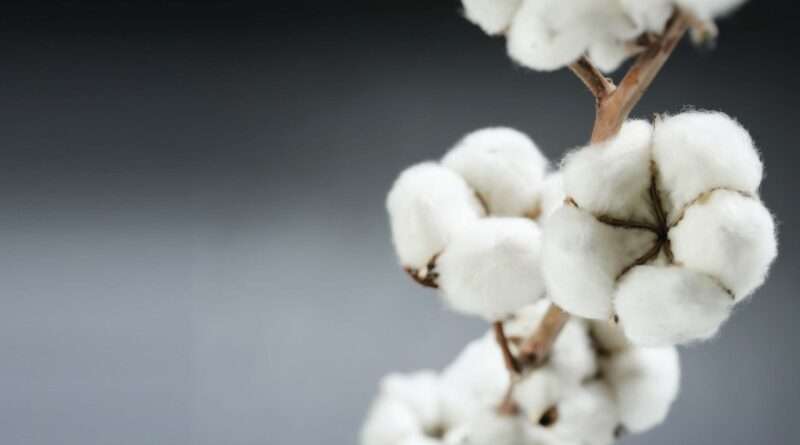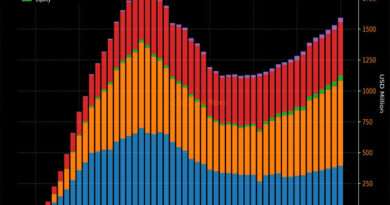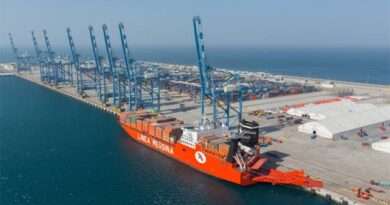Government Weighs Options for the Future of Pakistan’s Cotton Research: A Possible Takeover by Mills Association
|
Getting your Trinity Audio player ready...
|
The Pakistan Central Cotton Committee (PCCC), a vital organization dedicated to cotton research, has faced severe financial difficulties in recent years, with textile millers failing to pay the required cotton cess. As a result, the government is now exploring alternatives for the future of the committee, including potentially handing it over to the All Pakistan Textile Mills Association (Aptma), the main body representing textile millers. Another proposal under consideration is transferring PCCC’s responsibilities to the National Agricultural Research Centre (NARC).
PCCC’s Financial Troubles: A Critical Situation
Background of PCCC and Its Role in Cotton Research
The Pakistan Central Cotton Committee (PCCC) was established in 1948 under the Cotton Cess Act of 1923. Its primary role has been to conduct research to enhance cotton quality and boost production in Pakistan, a country whose textile industry heavily relies on cotton. To fund these crucial research activities, a cess of Rs50 per cotton bale is levied on textile mills. This cess has been the backbone of the committee’s funding for employee-related expenses and research initiatives.
However, since 2016, textile mills have been reluctant to pay this cess, especially after the rate was increased from Rs20 to Rs50 per bale. In addition, a new cess was imposed on imported cotton, adding to the industry’s frustration. As a result, PCCC has experienced a drastic decline in revenue, leading to severe financial difficulties. This financial crunch has affected the organization’s ability to carry out research and pay its employees, resulting in a significant setback for Pakistan’s cotton industry.
The Decline of the Cotton Cess
The resistance to cess payments by textile mills has been a significant issue for PCCC’s operations. The mills have filed 65 lawsuits in various courts, including the Supreme Court and high courts, challenging the cess. Despite winning 63 of these legal cases, with only two pending in the Peshawar High Court, the committee’s financial situation has worsened. The lack of cess payments has forced the organization to make partial salary payments to its employees, while pensions have been reduced by up to 80%.
This has created a difficult environment for PCCC, as the funds it receives are crucial for the salaries of its staff, as well as for research that could help improve cotton quality and production. The situation reached a point where the Economic Coordination Committee (ECC) recommended the closure of PCCC, deeming the organization inefficient due to its financial troubles.
Government’s Consideration of Two Key Proposals
Proposal 1: Handing Over PCCC to Aptma
The government has proposed two possible solutions to resolve the situation and ensure the continuation of cotton research in Pakistan. The first proposal suggests handing over the operations of PCCC to Aptma, the largest association of textile millers in Pakistan. Since Aptma represents the interests of textile mills, which are the primary stakeholders in cotton production and consumption, the hope is that they may be more motivated to ensure the sustainability of cotton research.
Aptma’s involvement could potentially lead to better funding and management of PCCC, as they would have a vested interest in improving cotton quality and increasing production. However, the transition of PCCC to Aptma would require careful planning to ensure that the organization’s primary research objectives are not overshadowed by the business interests of the textile mills.
Proposal 2: Transferring PCCC to NARC
The second proposal involves transferring PCCC’s responsibilities to the National Agricultural Research Centre (NARC), an institution dedicated to agricultural research. NARC already conducts research in various sectors of agriculture, and bringing PCCC under its umbrella could provide a more stable financial footing for cotton research. However, this transition would require significant restructuring, as NARC’s focus would shift to include the cotton industry, which is a different sector compared to its current work in broader agriculture.
The challenge with this option lies in NARC’s current capacity and its ability to handle the specific needs of cotton research. Additionally, there may be resistance from within NARC and the broader agricultural community regarding this expansion of its mandate.
Financial Support from the Government
Despite the financial troubles faced by PCCC, the government has made efforts to provide financial support. In May 2021, the government allocated Rs419 million as a supplementary grant to cover employee-related expenses. In June 2023, the ECC approved a Rs300 million loan to ensure the payment of salaries and pensions. However, due to the fiscal year’s conclusion, this loan was not disbursed, further exacerbating the committee’s financial challenges.
The government has also agreed to provide a loan of Rs656 million in the federal budget for the fiscal year 2024-25 to cover employee-related expenses. Despite these efforts, the ongoing legal battles and the unwillingness of textile mills to pay cess have made it difficult for PCCC to operate effectively.
The Importance of Cotton Research for Pakistan’s Economy
Cotton: The Backbone of Pakistan’s Textile Industry
Cotton plays a crucial role in Pakistan’s economy. It is not only a primary raw material for the textile industry, one of the country’s largest sectors, but also a significant export product. Improving cotton quality and increasing production are vital for enhancing the competitiveness of Pakistan’s textile exports in the global market.
Research into cotton is essential for developing better strains, increasing yield, and improving resistance to pests and diseases. This research can have a long-term impact on the entire supply chain, from farmers to manufacturers. Without proper research and development, Pakistan’s cotton industry risks falling behind other countries that are making strides in agricultural innovation.
The Need for Structural Reform in the Cotton Sector
The failure to collect cess payments highlights deeper structural issues within the cotton industry. Many millers argue that the cess is an unnecessary burden on their operations, especially during times of economic difficulty. As such, the ECC has suggested that the private sector take on more responsibility for conducting cotton research. This could involve greater collaboration between private mills and research institutions to fund and direct research in ways that directly benefit the industry.
The government, too, has recognized the need for structural reform in the cotton sector, including ensuring the financial sustainability of institutions like PCCC. This will require a reevaluation of how cotton research is funded and managed, as well as the role of both public and private sectors in driving innovation.
FAQs about the Future of PCCC and Cotton Research in Pakistan
1. What is the Pakistan Central Cotton Committee (PCCC)?
The PCCC is an organization established in 1948 to conduct research aimed at improving the quality of cotton production in Pakistan. It operates under the Ministry of National Food Security and Research.
2. Why is PCCC facing financial difficulties?
PCCC is facing financial issues due to textile mills’ refusal to pay the required cotton cess. This cess, which funds PCCC’s operations, has been contested in court by the mills, leading to a significant decline in PCCC’s revenue.
3. What are the two proposals being considered by the government?
The government is considering two proposals: one is to transfer PCCC’s operations to the All Pakistan Textile Mills Association (Aptma), while the other involves transferring the committee to the National Agricultural Research Centre (NARC).
4. How does cotton research benefit Pakistan’s textile industry?
Cotton research is crucial for improving cotton quality, increasing yield, and ensuring better resistance to pests and diseases. These advancements benefit the textile industry by providing high-quality raw materials, thus improving production efficiency and export competitiveness.
5. What steps has the government taken to support PCCC financially?
The government has provided financial support through supplementary grants and loans, including a Rs656 million allocation in the federal budget for fiscal year 2024-25. However, the failure of textile mills to pay cess has hindered the effectiveness of these efforts.
Conclusion: Ensuring the Future of Cotton Research in Pakistan
As the government explores options for resolving the financial issues at PCCC, the future of cotton research in Pakistan remains uncertain. Both the proposals to hand over the committee to Aptma or NARC have merits and challenges. Ensuring the sustainability of cotton research is critical for the continued success of Pakistan’s textile industry and its agricultural economy.
By addressing the underlying financial issues and restructuring the cotton research landscape, Pakistan can safeguard its position as a leading player in the global textile market.




